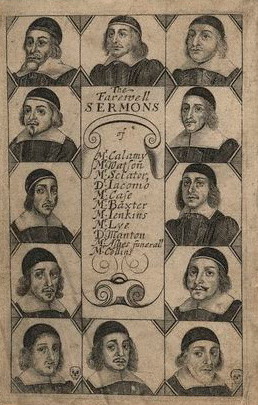Non-conformism facts for kids
Non-conformism is a movement in English Protestantism. It started with a group of Christians called the Puritans. Later, they were also known as Dissenters. These Christians did not want to follow the rules of the Church of England. They disagreed with some of the church's teachings. Because of this, they created their own Christian groups, called denominations. Some of these groups became Baptists, and others became Presbyterians.
Contents
What is Non-conformism?
Non-conformism means "not conforming" or "not following the rules." In England, it describes Christians who did not agree with the official Church of England. They believed the Church of England still had too many practices from the Catholic Church. They wanted a simpler way to worship God.
Why did Non-conformists form?
During the 16th and 17th centuries, the Church of England was the official church. Everyone was expected to follow its rules and attend its services. However, some Christians, like the Puritans, felt the church needed more changes. They wanted to "purify" it from practices they saw as wrong.
The Great Ejection of 1662
A very important event happened in 1662. This was called the Great Ejection. The government passed a law called the Act of Uniformity. This law made it compulsory for all ministers to use the new Book of Common Prayer. They also had to agree with all the rules of the Church of England. About 2,000 ministers refused to do this. They were forced to leave their churches and jobs. These ministers became known as Non-conformists or Dissenters.
What did Non-conformists believe?
Non-conformists often believed in:
- A simpler style of worship, without many ceremonies.
- The importance of personal faith and reading the Bible.
- That churches should be run by their members, not by bishops appointed by the king.
- Religious freedom for people to choose how they worship.
Different Non-conformist Groups
Many different Christian groups grew out of the Non-conformist movement. Some of the most well-known include:
- Baptists: They believe that only adults should be baptized, not babies. They also believe in the importance of each local church being independent.
- Presbyterians: They believe that churches should be led by elders, called "presbyters." These elders are chosen by the church members.
- Quakers: Also known as the Religious Society of Friends. They believe in finding God's spirit within each person. They often meet in silence.
- Congregationalists: They believe that each local church should be independent and govern itself.
Impact of Non-conformism
Non-conformists faced many challenges. For a long time, they were not allowed to hold public office. They could not attend universities like Oxford or Cambridge. Despite this, they played a big role in English history.
Contributions to Society
Non-conformists were very important in:
- Education: They set up their own schools and academies. These schools often taught science and modern languages.
- Politics: They fought for religious freedom and civil rights. Many Non-conformists became important politicians later on.
- Social Reform: They were often leaders in movements against slavery and for better working conditions.
Today, many churches around the world have roots in the Non-conformist movement. They continue to value individual faith and community involvement.
See also
 In Spanish: Inconformismo (desambiguación) para niños
In Spanish: Inconformismo (desambiguación) para niños


